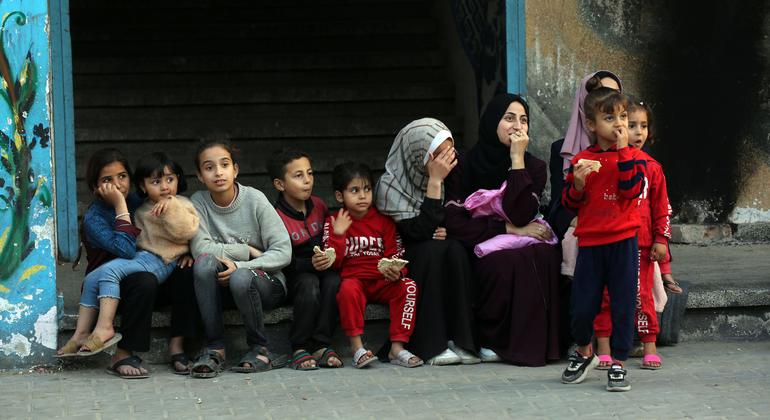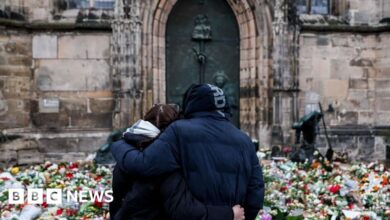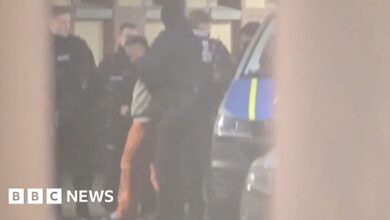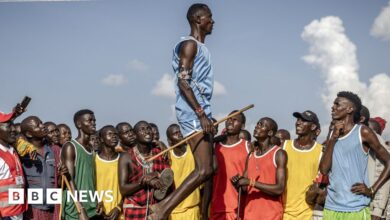Gaza: UNRWA programme aims to get children ‘back to school’


“This first step in a longer journey focuses on activities that will give children shelter from the horrors they are still experiencing,” said Commissioner General Philippe Lazzarini. speak in a post on social media platform X, formerly Twitter.
He added that children in Gaza “are living through unspeakable atrocities. They are living in trauma and shock from 300 days of war, displacement, loss and pain. They have witnessed things that no child should witness.”
Play, learn and grow
Children make up half of Gaza’s population, more than one million people.
They were “traumatized and shocked,” speak Scott Anderson, UNRWADirector in Gaza.
The Back to Learn program is being rolled out “to help kids cope and just be kids,” he said. “It will give them a safe space to play, learn, grow, reunite with old friends and make new ones.”
The first phase will see the expansion of ongoing psychosocial support activities, focusing on arts, music and sports, alongside raising awareness of the risks of explosives.
The second stage will transition to include informal learning activities, with reading, writing and maths lessons.
UNRWA plans to provide formal education to children in Gaza as soon as conditions allow.
“Therefore, Gaza urgently needs an immediate and lasting ceasefire for the sake of children and their future,” said Mr. Anderson.
Aid distribution hampered
Also on Thursday, the UN humanitarian office, OCHA, warned that ongoing hostilities, persistent evacuation orders, access barriers and other challenges continue to hamper efforts to deliver aid in Gaza.
World food program (World food program) and other agencies are still unable to get enough food into and around the area due to the lack of border crossings, difficulties in obtaining permits for convoy movement, and lack of public order and safety.
More than 20 WFP food distribution points have been lost due to recent evacuation orders, and soup kitchens and bakeries have been forced to relocate.
Reduced food intake
Following the evacuation order issued last week in Khan Younis, WFP is distributing one food package per family and has so far reached about 8,000 families.
“Due to high demand and limited stocks, the agency has had to reduce rations to one packet per family to ensure people have enough food to meet their most basic needs, but it is still not enough,” OCHA said.
Additionally, only 12 of Gaza’s 18 bakeries are operating, and those in the central area have only enough fuel to last a few days.
Despite the challenges, WFP was able to provide food, flour or hot meals to nearly 1.2 million people in July, although rations were reduced and irregular.
Humanitarian partners also voiced concern about the destruction of the Canadian water reservoir in Rafah, which was blown up last week.
The reservoir has a capacity of about 3,000 cubic metres of water and until recently served thousands of displaced people taking shelter in Rafah.
However, they warned that destroying it could hinder the return of Rafah residents and continue to force families to use unsafe water, putting them at risk of dehydration, malnutrition and disease.




